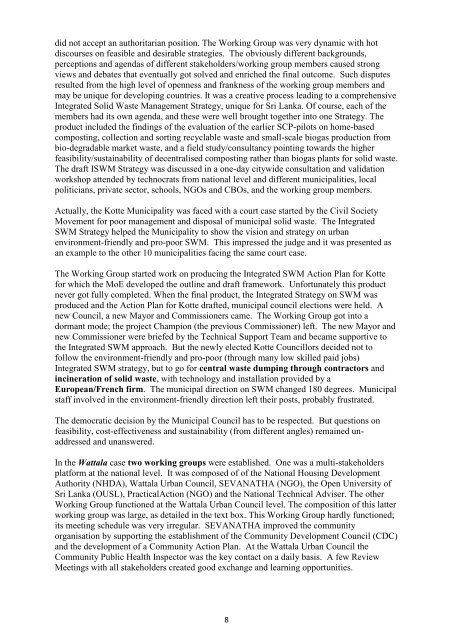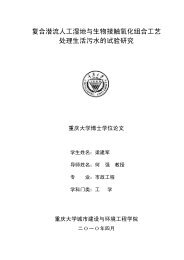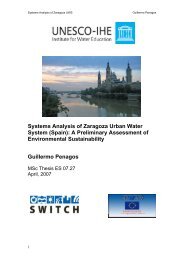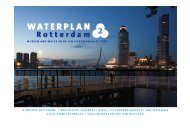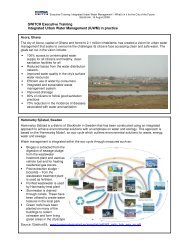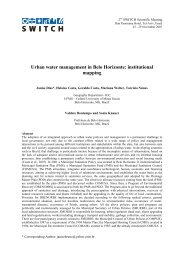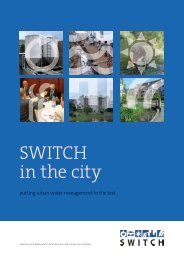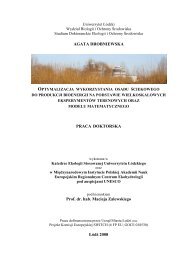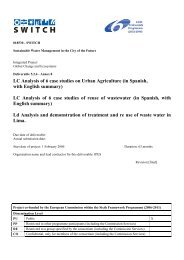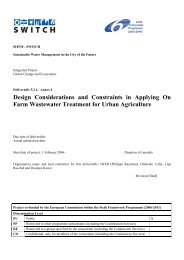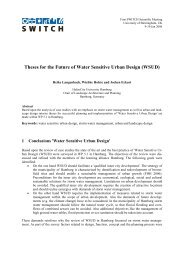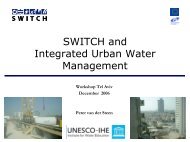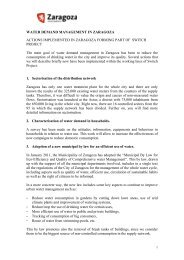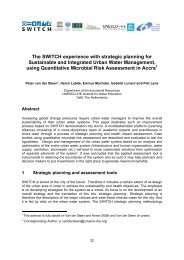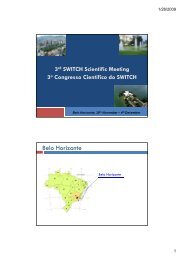Good practices for Social inclusion - Case studies and summary
Good practices for Social inclusion - Case studies and summary
Good practices for Social inclusion - Case studies and summary
Create successful ePaper yourself
Turn your PDF publications into a flip-book with our unique Google optimized e-Paper software.
did not accept an authoritarian position. The Working Group was very dynamic with hot<br />
discourses on feasible <strong>and</strong> desirable strategies. The obviously different backgrounds,<br />
perceptions <strong>and</strong> agendas of different stakeholders/working group members caused strong<br />
views <strong>and</strong> debates that eventually got solved <strong>and</strong> enriched the final outcome. Such disputes<br />
resulted from the high level of openness <strong>and</strong> frankness of the working group members <strong>and</strong><br />
may be unique <strong>for</strong> developing countries. It was a creative process leading to a comprehensive<br />
Integrated Solid Waste Management Strategy, unique <strong>for</strong> Sri Lanka. Of course, each of the<br />
members had its own agenda, <strong>and</strong> these were well brought together into one Strategy. The<br />
product included the findings of the evaluation of the earlier SCP-pilots on home-based<br />
composting, collection <strong>and</strong> sorting recyclable waste <strong>and</strong> small-scale biogas production from<br />
bio-degradable market waste, <strong>and</strong> a field study/consultancy pointing towards the higher<br />
feasibility/sustainability of decentralised composting rather than biogas plants <strong>for</strong> solid waste.<br />
The draft ISWM Strategy was discussed in a one-day citywide consultation <strong>and</strong> validation<br />
workshop attended by technocrats from national level <strong>and</strong> different municipalities, local<br />
politicians, private sector, schools, NGOs <strong>and</strong> CBOs, <strong>and</strong> the working group members.<br />
Actually, the Kotte Municipality was faced with a court case started by the Civil Society<br />
Movement <strong>for</strong> poor management <strong>and</strong> disposal of municipal solid waste. The Integrated<br />
SWM Strategy helped the Municipality to show the vision <strong>and</strong> strategy on urban<br />
environment-friendly <strong>and</strong> pro-poor SWM. This impressed the judge <strong>and</strong> it was presented as<br />
an example to the other 10 municipalities facing the same court case.<br />
The Working Group started work on producing the Integrated SWM Action Plan <strong>for</strong> Kotte<br />
<strong>for</strong> which the MoE developed the outline <strong>and</strong> draft framework. Un<strong>for</strong>tunately this product<br />
never got fully completed. When the final product, the Integrated Strategy on SWM was<br />
produced <strong>and</strong> the Action Plan <strong>for</strong> Kotte drafted, municipal council elections were held. A<br />
new Council, a new Mayor <strong>and</strong> Commissioners came. The Working Group got into a<br />
dormant mode; the project Champion (the previous Commissioner) left. The new Mayor <strong>and</strong><br />
new Commissioner were briefed by the Technical Support Team <strong>and</strong> became supportive to<br />
the Integrated SWM approach. But the newly elected Kotte Councillors decided not to<br />
follow the environment-friendly <strong>and</strong> pro-poor (through many low skilled paid jobs)<br />
Integrated SWM strategy, but to go <strong>for</strong> central waste dumping through contractors <strong>and</strong><br />
incineration of solid waste, with technology <strong>and</strong> installation provided by a<br />
European/French firm. The municipal direction on SWM changed 180 degrees. Municipal<br />
staff involved in the environment-friendly direction left their posts, probably frustrated.<br />
The democratic decision by the Municipal Council has to be respected. But questions on<br />
feasibility, cost-effectiveness <strong>and</strong> sustainability (from different angles) remained unaddressed<br />
<strong>and</strong> unanswered.<br />
In the Wattala case two working groups were established. One was a multi-stakeholders<br />
plat<strong>for</strong>m at the national level. It was composed of of the National Housing Development<br />
Authority (NHDA), Wattala Urban Council, SEVANATHA (NGO), the Open University of<br />
Sri Lanka (OUSL), PracticalAction (NGO) <strong>and</strong> the National Technical Adviser. The other<br />
Working Group functioned at the Wattala Urban Council level. The composition of this latter<br />
working group was large, as detailed in the text box. This Working Group hardly functioned;<br />
its meeting schedule was very irregular. SEVANATHA improved the community<br />
organisation by supporting the establishment of the Community Development Council (CDC)<br />
<strong>and</strong> the development of a Community Action Plan. At the Wattala Urban Council the<br />
Community Public Health Inspector was the key contact on a daily basis. A few Review<br />
Meetings with all stakeholders created good exchange <strong>and</strong> learning opportunities.<br />
8


